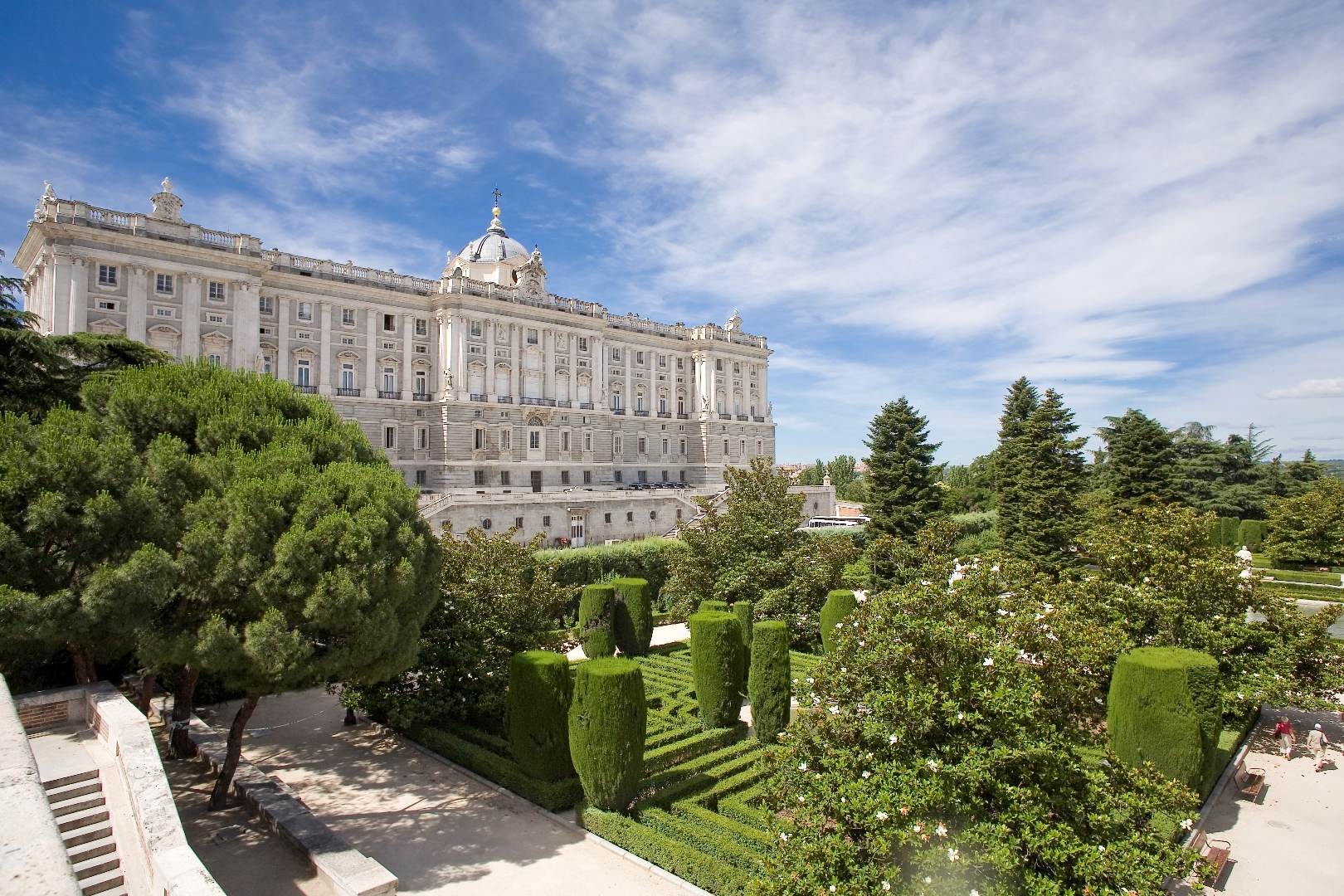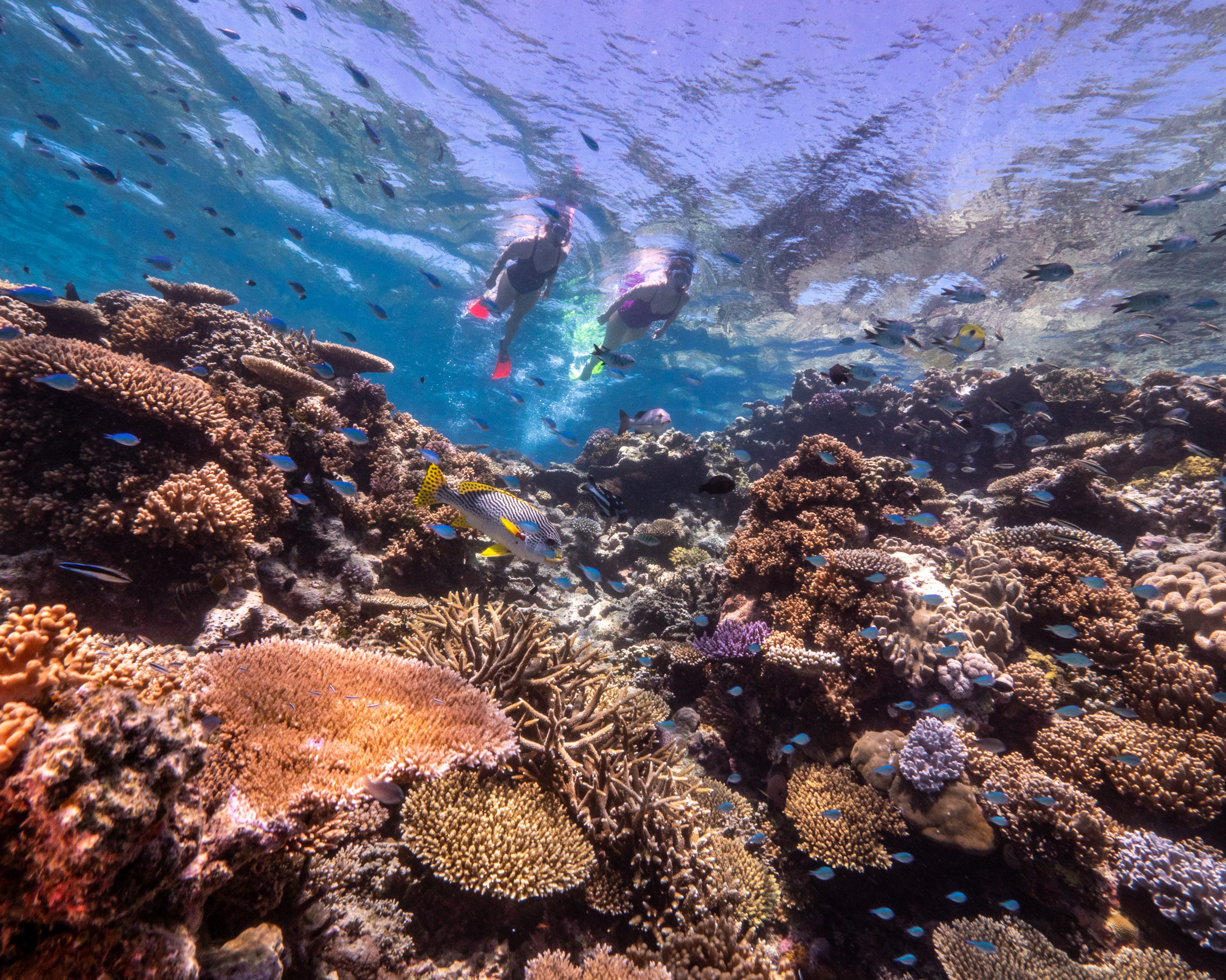There’s a definite buzz of excitement in Taiwanese business event circles – a feeling that the island is finally making its mark on the competitive industry on an international scale.
A mature destination for exhibitions thanks to its important role in high-tech, medical and other industries, the island is now quickly catching up in the fields of conference and incentive travel. Warming ties with mainland China have led to the arrival of huge incentive groups with thousands of participants from across the Taiwan Strait. And prestigious international events, which previously felt unable to use Taiwan as a destination because of concerns that mainland Chinese invitees might not be able to attend, are now actively exploring opportunities there.
In the 2009 ranking by the International Congress and Convention Association, Taipei was seventh among Asian cities; having held 64 international conferences, it overtook Shanghai and Tokyo. At the same time, Taiwan moved up three places compared to the year before, to 32nd worldwide, with 91 international conferences.

“Association meetings are the major portion, compared to incentives; however, there is a significant increase in the number of corporate meetings and incentive groups. This year looks promising with several international congresses scheduled, Including the International Design Alliance (IDA), the 12th Electronic Circuits World Convention, IEEE International Magnetics Conference and more,” says Sin Chen, project leader, Meet Taiwan, the business events promoter sponsored by the Bureau of Foreign Trade.
Expecting a growing number of visitors, the Taiwan Tourism Bureau has approved investment plans for 37 hotels that will offer more than 10,000 new rooms. This represents a US$6.25 billion investment and has attracted interest from more than 10 international hotel chains. The bureau is also reviewing grades for the existing 2,600 international-standard hotels and has started a “Top 10 hotels” competition to improve standards.
“Taiwan needs more international hotels – they are ambassadors for tourism,” comments Ulf Bremer, general manager of Shangri-La’s Far Eastern Plaza Hotel Taipei. He adds that the expected growth in tourism puts a great strain on human capital, and calls for systematic development of the necessary human resources.

Creativity and flexibility
With the burgeoning number of meetings and conferences, event planners are becoming more familiar with the niche Taiwan fills in the Asian business event circuit, as well as the wide variety of attractions it offers, including beaches, mountains, hot springs and rich cultural encounters.
“What is Taiwan’s main draw? Nature, culture, people’s genuine hospitality, our creativity and flexibility,” says Jason Yeh, chief executive of GIS Group. “Here, visitors can experience the different aspects of Chinese culture, from traditional Chinese to that of indigenous people, a variety of landscapes and food, and 23 million friendly people.”
Kitty Wong, president of K&I International, thinks Taiwan’s main competitive edges are its fresh image, high quality of service and value for money. “Event planners are looking for destinations which are new, safe and worth the money,” she says, adding that she believes Taiwan ticks every box.
Most importantly, “Taiwan has created a very good image with its creativity and flexibility,” says Yeh.

Off the beaten track
Indeed, Taipei has so much to offer in the way of unusual venues and creative entertainment that many companies coming for meetings, teambuilding and incentives never look beyond the very heart of the capital city. Even so, just 45 minutes away by coach, a wealth of activities awaits those willing to make the trip.
Yilan county lies on a narrow plain between the Pacific Ocean and the Central Mountain Range that runs the length of the island from north to south. It is quiet, close to nature and best known for its rice fields, orchards and numerous hot springs.
It can be difficult to persuade meeting groups to get off the beaten track and explore something different, and so for the time being, it’s mostly select, smaller groups that visit this part of Taiwan. The majority come from Europe, but gradually there are more arriving from Japan and some from China, according to Wong. Yeh adds that event planners in Malaysia, Hong Kong, Macau and Singapore are also becoming more familiar with the area and the wealth of activities it offers.
Inspired by nature and culture
Yilan’s modern, international-grade hotels make it possible not only to conduct meetings in city comfort but, unlike in an urban environment, also to lay on healthy, more exotic, outdoor team-bonding activities. Throughout the county, there are all kinds of opportunities for unique and unforgettable experiences.
At Shangrila Leisure Farm, for example, you can pick your own fruits and vegetables, and even test your team’s knowledge of plants in a competition. Or, as a souvenir, it is possible to batik paint your own T-shirt, using wax in the Hakka Chinese style, and, in the evening, send your wish to the sky using lanterns you painted and decorated earlier in the day. Shangrila also allows groups to make and play with traditional toys, teaching visitors how to paint a traditional spinning top or make a bamboo cicada or rattle drum.
In addition, “the food is really good”, says Wong. “They have free-range chickens and their chef is prize winning.”
Teams can further develop their creative side by visiting Baimi Clogs Village and learning about the different varieties of the traditional wooden clogs; they can even paint a pair of their own. While there, they can also enjoy a bath in the Su-ao Cold Spring and spend a pleasant hour walking to the 30m-high Sinliao Waterfall, crossing rustic log bridges and a narrow suspension bridge. Along the way, there are nine other picturesque waterfalls and a beautiful reservoir. It is advisable, though, to get there early, as there is a limit on the number of visitors allowed each day.
Jhenjhu Straw Art Village in Dongshan Township, just north of Su-ao, offers another great chance to practise traditional Taiwanese arts. As well as being a cultural and historical attraction, the village’s eco-park is also a good outdoor venue for treasure hunts and other teambuilding activities. Delegates can participate in the traditional local art using straw to make masks, folk toys and paintings. There’s also a well-preserved Zhuwei farmhouse and a kite museum.
Continuing further north, Dongshan River Water Park is another great place for outdoor events. It features several venues, including an outdoor theatre and a pond with boats and kayaks for fun-filled teambuilding exercises. There is also the option of a romantic boat trip along the coast to take delegates for a sunset cocktail and a fresh seafood dinner. “But you have to book ahead,” warns Wong.
The National Center for Traditional Arts was built on 24ha of land within the park. It is a venue full of special opportunities for event organisers, packed with hands-on activities and unique interactive programmes showcasing traditional arts, music, dance, theatre, acrobatics and food that can keep a group engaged for several days.
The exhibition hall has such a rich collection of art works that locals call it the mini National Palace Museum, referring to Taipei’s most famous repository of cultural treasures. There is a theatre with 400 seats, which also hosts a variety of performances based on traditional arts. In addition, an experimental theatre seats 150 people, a multimedia room seats 113, a conference centre has 80 seats, and another hall is suitable for a smaller group of 20 to 40 people.
Delegates can learn and enjoy themselves at the same time, watching theatre or acrobatic performances at the 200-seat outdoor venue or the 3,000-seat multi-purpose plaza. They can enjoy a pre-dinner tipple while appreciating beautiful surroundings and watching the river flowing slowly past. The expansive lawn can accommodate up to 8,000 people.
“We had a theme party [arranged] as a temple fair, and a parade with people [from the incentive group] playing different roles. You can learn traditional dances and play with folk toys,” says Yeh.
On Education Boulevard, there are workshops where master craftsmen give presentations and visitors can try their hand at Taiwanese crafts.
For shopping enthusiasts, dozens of old-style shops offer exquisite handcrafted toys, sweets, pottery, soaps, fans, toys and other goods; on this period street no two shops are the same.
Delegates can also get involved in indigenous life, spending a whole day in a village, learning dances and songs or weaving, planting rice and catching lobsters by hand. They’ll also get to interact with the extremely hospitable local villagers.
Taiwan offers plenty of opportunities for relaxation in a hot spring, and Yilan has several excellent spas. “There are many hot springs but most of them don’t have enough rooms [for a group],” says Wong, suggesting that groups should use larger, upscale hotels, such as the Royal Chiao Hsi or Evergreen Resort Hotel (see Hotel Highlights), that offer the opportunity both to hold meetings and teambuilding sessions, and to relax in the hot springs afterwards.
Away from it all
The beauty of majestic green mountains, deep gorges and waterfalls will impress delegates who visit Hualian. “Once we arranged a concert by five violins and a cello for a small group of 50 people from Roche, the pharmaceutical company,” says Yeh, describing a magical moment on the riverbank. “For another group of 500 people we hired an old primary school where the tribe played out their [historical] ceremony, the story of which gave birth to the [tribe’s traditional] fire festival,” he says.
It takes 40 minutes by plane or two and a half hours by train from Taipei. Wong suggests only groups going to Taiwan for five days or more should attempt the trip, noting that it’s better for smaller groups of less than 200.
“Recently, a French group spent two days with an aboriginal tribe up in the mountains,” she says. “They tried exotic food, such as wild pig, veggies collected on the mountain and freshly caught fish. Visitors have to be adventurous, curious and very open-minded. It’s a niche market.”
The group also visited an indigenous orphanage, and made a donation to the children. Wong says it is possible to weave corporate social responsibility into the programme, but it takes some time to liaise with the orphanage and set up such a visit.
FAST FACTS
ACCESS
Taiwan is well served by international flights. Its main point of access, Taiwan Taoyuan International Airport, is the world’s 13th busiest airport by international passenger traffic. Taipei Songshan Airport, recently upgraded to international level, is open for regional flights between
Taipei and Hongqiao (Shanghai, China), Haneda (Tokyo, Japan) and Gimpo (Seoul, Korea) airports.
CLIMATE
Taiwan has a subtropical climate, with an average temperature of 22oC and a difference of about three to five degrees between the mountains and cooler north, and the hot and humid south. The heaviest rainfall is in May and June and the typhoon season stretches from June to October. In winter, visitors can enjoy snow on the mountain peaks.
VISA
Visitors from a total of 38 countries can enter visa-free for stays of between 30 and 90 days. The list includes most Western European countries. In Asia-Pacific Australia, Japan, Malaysia, New Zealand, Singapore and South Korea are included. Check www.boca.gov.tw under “Visa exempt entry” for more information.
LANGUAGE
Mandarin Chinese is the official language, with several Chinese dialects widely spoken in rural areas. It is easy to get by in the big cities with English and Japanese – in the countryside, knowledge of foreign languages in not widespread.
CONTACT
Taiwan MICE Advancement Program
International Marketing and Promotion Project (Meet Taiwan)
Taiwan hosted numerous large conventions in 2010:
• 2010 Bayer Asia-Pacific Training Annual Meeting, 3,000 participants
• World Model United Nations (MUN) 2010, 1,700 participants
• 2nd Asia-Oceania Conference of Physical & Rehabilitation Medicine 1,600 participants (picture below)
• 10th Asian Congress of Urology, 1,600 participants
• 2010 Small Business Congress, 800 participants
• The ASIEAP 18th Conference of the Electric Power Supply Industry, 1,200 participants
• Nu Skin Forum, 18,000 participants
• 2010 Perfect Taiwan Convention, 5,200 participants
THE PROFESSIONALS
K&A International
email: Kitty@knaintl.com.tw
GIS group
email: maureen.liao@gisgroup.com
Round Table PCO
email: ceo@come2meet.com
EXPERT VIEW
Sin Chen, project leader, Meet Taiwan
“Hualien is often called the backyard of Taiwan, with the breathtaking Taroko National Park, the East Coast and forest recreation areas. With such an abundance of tourist resources, Hualien offers you the enjoyment of healthy pursuit, such as walking along forest trails, the excitement of white-water rafting or whale watching, and religious meditation experiences in the world-famous Tzu Chi Foundation.”
HOTEL HIGHLIGHTS
A number of high-quality business hotels have opened recently, offering an improved choice for business event organisers and participants.
TAIPEI
W hotel
Opening in February, W hotel is an exciting addition to Taipei’s available meeting space with its 1,039-square-metre grand ballroom, a range of meeting rooms and its funky F&B outlets. The 405-room hotel, situated above the MRT’s Taipei City Hall station and the eastern bus terminal complex, which also has a shopping mall, will be near the TWTC Exhibition Halls, the Xinyi CBD, Taipei 101 and a range of Shin Kong Mitsukoshi department stores. Entry-level rooms start at 43sqm, going up to the 365-square-metre Extreme Wow Suite.
There are two restaurants, one of them a first-ever Chinese restaurant for a W hotel; one bar, a signature W lounge called the WOOBAR; a rooftop outdoor pool and poolside bar designed with business events in mind; a fitness centre and spa; and a calendar of exclusive W Happenings. The hotel offers sensory room set-up and Wish Workshops for meeting delegates.
Le Meridien Taipei
www.starwoodhotels.com/lemeridien
This 160-room hotel opened in November in the Xinyi central business district. The hotel provides easy access to Taipei 101, shopping centres, banks and company headquarters. Rooms feature floor-to-ceiling windows, LCD TVs and high-speed internet, among other attractions. Three F&B outlets serve Cantonese and local cuisine, while an indoor heated pool and a health club offer space to relax and recharge.
Mandarin Oriental
Opening in 2012, the luxurious hotel will be part of a mixed-use lifestyle complex situated on the cosmopolitan Dun Hua North Road, in the centre of the city. The 300 stylish guestrooms will be one of the largest in town. The hotel will have four restaurants delivering at the well-known Mandarin standards, two bars and a 1,858sqm signature Mandarin Oriental spa with fitness centre and an outdoor swimming pool. The complex will also house 26 luxurious Residences at Mandarin Oriental, adjacent to the hotel.
Palais de Chine
This beautiful, dark and sensuously decorated hotel opened its doors in March last year and has 286 guestrooms. It’s close to the Ximending business district and situated above the Taipei Main Station transportation hub. The bus station and the high-speed train terminal are within walking distance. The Taoyuan Airport line will also be right on the hotel’s doorstep once it is completed in 2013. From the 30sqm superior rooms up to the 67sqmexecutive suites, each has a flat-screen TV, wifi and a media hub. Four elegant F&B outlets serve steak (La Rotisserie), Cantonese cuisine (Le Palais), afternoon tea (Le The) and avant-garde cocktails (Le Bar). A Grand Hall and four multifunction rooms are available for events.
Yilan
Royal Chiao Hsi
The bright and stylish 198-room hotel has a hot-spring bathtub in every room, plus an open-air spa and a spa complex. For sport and relaxation, there is a swimming pool, a theme garden and a recreation centre offering gym, table tennis and daily classes on how to make innovative folk games. The grand ballroom and the multifunction room can accommodate 26 and 20 banquet tables seating 321 and 240 people respectively, while there are seven smaller meeting rooms can seat between 30 and 220 people. Two restaurants and a Lobby Lounge with all-day dining serve delicate Japanese-French fusion cuisine, Chinese and Western seafood, and light meals.
Evergreen Resort Hotel (Jiaosi)
This 251-room hotel opened in 2010. It features a 4,950sqm public hot spring in a pleasantly designed hanging garden. The modern conference room can hold 1,000 people or, as a banquet room, 100 tables. The various types of modern Japanese and European-style suites all have their own hot spring pools as well – particularly nice during winter.
Silks Place Yilan
The exquisitely decorated hotel is situated in Luna Plaza, the largest shopping mall in East Taiwan. Double suites and sky villas have balconies and exclusive outdoor Jacuzzis. The Sky Garden is a really cool leisure facility situated on the sixth floor, with indoor and outdoor pools, plus fitness facilities. The ballroom is suitable for up to 1,000 people, depending on the nature of the event. The multifunction meeting room comes with consultant services and the help of the conference service team. The sky garden is a beautiful outdoor party area. The Mix Gourmet and the Red Lantern serve international and Chinese menus respectively, and The Lounge has light meals until midnight.
Hualien
Parkview Hotel Hualien
In town, Parkview Hotel offers accommodation and a range of function rooms, including the 668sqm ballroom and two meeting rooms of 399sqm and 317sqm, plus a swimming pool and a large area for teambuilding sessions conducted by Outward Bound’s Taiwan branch.
Silks Place Taroko
http://taroko.silksplace.com.tw
The only five-star hotel in the area, the sleek 212-room Silks Place Taroko has conference facilities able to accommodate more than 300 people. The all-day-dining Wellesley restaurant has indoor and outdoor seating, while the Mei Yuen restaurant offers delectable Chinese cuisine. Although the whole Taroko gorge is a great venue for outdoor functions, the hotel’s rooftop bar and swimming pool are also attractive options.
Leader Village Taroko
Surrounded by peaks lost in clouds, Leader Village Taroko offers 32 log cabins, tasty vegetarian meals and fun entertainment where guests can interact with indigenous villagers of all ages. There is a spacious meeting room, or people can just convene outside in the large open area covered by brilliant-green grass.


